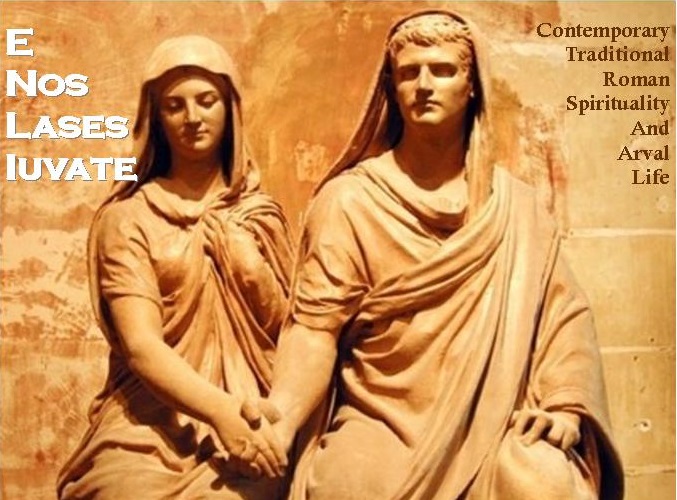Some days ago, as usual in this period, we have been engaged in the olive harvest. Agricultural works and activities are fountamental practices both in practical and in spiritual terms.
I'm trying to inspire my life to the Arval Principles: so for me enforcing my roots with the Earth plays a crucial role.
During a brief break for lunch, eating a frugal meal based on bread, beans, cheese and wine, I wanted to mention and invoke some Deities I considered relevant for the work we were making. Starting from Janus, I cited for example, Minerva, Ceres, Pluto and Proserpina, Pomona, Venus, Maia Volcani, Flora and Gaia, Dyonisus, Consus, Liber et Libera, Mars (and other agricultural Deities from the Indigitamenta) concluding with Vesta (in accordance with the traditional rite).
Mentioning these Gods and Goddesses drove me to think about the large number of Forces, Energies and elements contributing to create the food we finally eat. Elements from the ground, the weather, plants and animals, the mens'/womens' work: it is a long series of components giving an enormous value to food.
I thought moreover that many people (above all kids), jusr buying the food they eat, very often do not understand and know the real value of food because their links with Nature and the Earth, embodied also by food, have been definitively broken and lost. Of course I'm not thinking about the sole economic value, but also, and maybe above all, about the substantial, intrinsic and symbolic value of food during all its constitutive phases from production to consumption.
I consider myself very lucky because I have a small garden where I can cultivate part of the family food. I live in the countryside so, anytime I can, I participate to many agricultural works in the country. I have also attended several times to the animals' butchery for the family needs in the farms in the surroundings. This is to say that these things always remember me what exactly underlies a dish of salad or broccoli, a bowl of beans, a steak or a chicken wing.
I my opinion, all this can be a form of Colere Deos/Deas.
When mentioning or invoking all these Gods and Goddesses we finally streghten our awareness about the complex combination of so many components behind the food we eat. All this can stimulate respect and sacrality for food: this is the reason why having a meal can become a rite. Sharing a meal in the family or with some friends is definitively a rite: drinking a glass of wine with this spirit can become a liturgy.
The sacred role of food is also evidenced by "simplicity". I think that it should be always better choosing and eating food composed by few simple ingredients. What kind of respect can we have for a food made mainly by unintellegible chemicals?
I believe that eating hamburgers in a fast food or always buying frozen food in a big supermarket, all the habits making eating food just a mechanical, impersonal, automatic and unaware action, contribute to push us far away from the sacred meaning of food and from the Forces and Energies involved in its creation. Of course I don't want to assert that everyone should have a garden to cultivate his/her own food. I'm not a fanatic against fast food restaurants, junk food and so on. This is not the point of the issue.
This post should be considered just a little invitation to be aware about the importance to maintain the links with Nature and with the food deriving from her. It's important not to lose this link, the respect and the sense of sacred role of food.
In addition all this will contribute to our physical and spiritual health.



